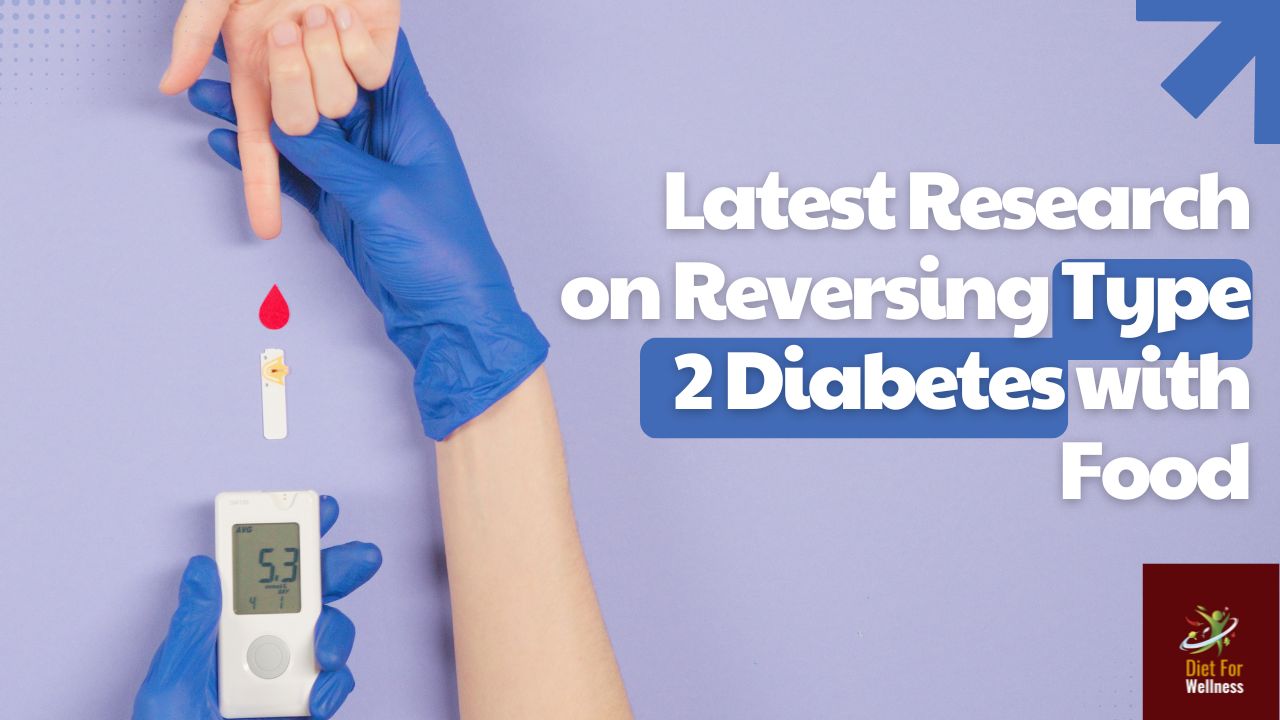Latest Research on Reversing Type 2 Diabetes with Food

While there’s no definitive cure for type 2 diabetes, research shows that some individuals can achieve remission. This often involves dietary modifications and weight loss, potentially allowing them to maintain normal blood sugar levels without medication.
It’s important to understand that remission doesn’t equate to a complete cure.
Type 2 diabetes is a chronic condition, and even if you’re in remission (meaning you’re medication-free with stable blood sugar), there’s always a possibility of symptoms recurring. Nevertheless, some individuals successfully manage their glucose and avoid diabetes-related health issues for extended periods.
The primary factor in achieving remission appears to be weight loss. Losing excess weight can not only help manage diabetes but, in some cases, may even lead to a diabetes-free life. This is particularly true for those who have had the condition for only a few years and haven’t required insulin therapy.
Tips for Blood Sugar Management
Maintaining healthy blood sugar levels is important, and several accessible methods can help you achieve this.
A Path to Remission with Very Low-Calorie Diets
Recent studies in England have explored the impact of very low-calorie diets on overweight individuals with diabetes. In two studies, participants followed a predominantly liquid diet of 625-850 calories daily for 2-5 months, followed by a less restrictive maintenance diet. Remarkably, nearly half of the participants achieved diabetes remission, sustaining near-normal blood glucose levels for 6 months to a year.
While this dietary approach is extreme and requires professional guidance and strict adherence, the potential for diabetes remission can be a powerful motivator. Most participants who were successful lost around 30 pounds and had not had diabetes for as long as those who were less successful. This highlights the importance of initiating a weight loss plan soon after diagnosis.
Previously, it was believed that cells responsible for blood sugar control in type 2 diabetes were permanently damaged. However, research indicates that some of these cells can recover. Weight loss in these studies correlated with reduced fat levels in the liver and pancreas, which for some individuals, helped reactivate the insulin-releasing beta cells in the pancreas. This suggests that early, significant weight loss after diagnosis may be more effective than gradual lifestyle changes and medication in rescuing these crucial cells.
Exercise is An Important Complement to Diet
While exercise alone may not be sufficient for diabetes remission, it significantly enhances the effects of dietary changes. Combining a modest, lower-calorie diet with increased physical activity can set you on the path to remission.
One study showed that people who aimed for 10,000 steps daily, a 500-750 calorie deficit daily, at least 2.5 hours of moderate exercise weekly, and a specific insulin and medication regimen, achieved near-normal blood sugar levels without medication. Some maintained these levels long-term.
Weight loss is essential. Exercise is a valuable tool to achieve this, but it’s important to combine it with dietary modifications.
An Emerging Concept of Fasting
Fasting, although a practical approach to weight loss, is not yet a mainstream treatment for type 2 diabetes.
A very small study showed that therapeutic fasting (abstaining from caloric food and drink for set periods) could help reverse type 2 diabetes. Three diabetic participants followed a program of three 24-hour fasts weekly for several months, consuming only dinner on fasting days and lunch and dinner on non-fasting days, with a focus on low-carbohydrate meals. Two participants discontinued all diabetes medication, and the third reduced three of their four medications. All three stopped taking insulin within 1-3 weeks and lost 10-18% of their body weight (20-23 pounds).
Another study showed that consuming a very low-calorie diet (500-600 calories) two days a week, with a normal diet on other days, was as effective for weight loss and blood sugar reduction as a continuous daily calorie restriction of 1,200-1,500 calories.
While research is still being done, intermittent fasting shows promise and various health benefits. Studies on intermittent fasting in humans with chronic diseases have demonstrated improved disease control. However, these studies are typically short-term (months), and the long-term sustainability of these benefits over years is not yet clear.
If you are considering fasting, it is important to work closely with your doctor to ensure safety and receive appropriate guidance and support.
